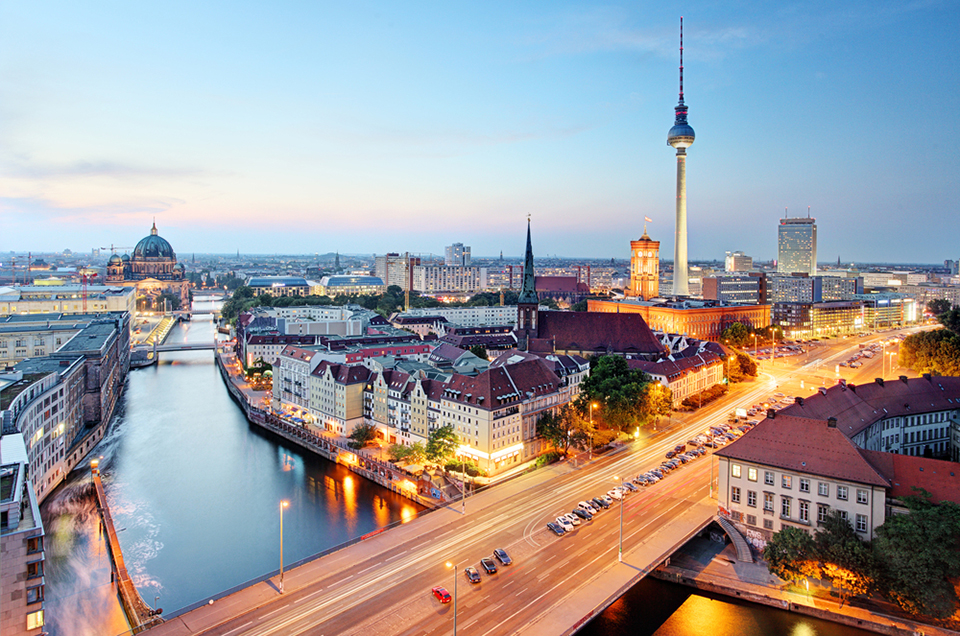Ranked: World’s Best Countries to Headquarter Multinational Corporations (MNCs) For 2021

Singapore has been crowned as the best country in the world to headquarter multinational corporations (MNCs) for 2021, according to the CEOWORLD magazine. Germany took silver, followed by Australia (No. 3), Canada (No. 4), and Switzerland (No. 5). Ranked number 1 among 78 most competitive economies, Denmark continues to be the most attractive destination where business decision-makers say they would open the main office.
The rankings were based on 12 different factors including nation’s trade and tax policies; economic policy and growth; legal framework; business openness; political stability, institutional support; favorable tax environment; corruption; visa liberalization (company executives and managers); quality of life; having an educated population; and well-developed infrastructure. Each category was equally weighted.
A number of factors must be taken into consideration before choosing a country to headquarter your corporation in. You should be able to connect easily with the rest of the world. Or at least with your major markets. The economic situation and tax policies play a huge role in the success of your business. Employees are the heart and soul of any corporation. It is key to get the best possible talent onboard at reasonable costs.
The rankings had the United Arab Emirates in sixth place, followed by the Netherlands, Sweden, the United Kingdom, and New Zealand. The 2021 edition of the report in which CEOWORLD magazine ranks and analyzes 78 countries according to their business, mobility, and investment environment. CEOWORLD magazine thinks that ease of doing business and people (investors & skilled employees) mobility play strategic roles.
World’s Best Countries to Headquarter Multinational Corporations (MNCs) For 2021
| Rank | Country | Score |
|---|---|---|
| 1 | Denmark | 71.78 |
| 2 | Germany | 68.04 |
| 3 | Australia | 67.16 |
| 4 | Canada | 66.39 |
| 5 | Switzerland | 66.06 |
| 6 | United Arab Emirates | 65.27 |
| 7 | Netherlands | 64.14 |
| 8 | Sweden | 63.2 |
| 9 | United Kingdom | 61.3 |
| 10 | New Zealand | 60.97 |
| 11 | Luxembourg | 60.66 |
| 12 | United States | 60.25 |
| 13 | Austria | 59.85 |
| 14 | Singapore | 59.65 |
| 15 | Norway | 58.8 |
| 16 | Finland | 58.59 |
| 17 | Japan | 58.37 |
| 18 | Italy | 58.1 |
| 19 | France | 57.96 |
| 20 | Thailand | 57.3 |
| 21 | Taiwan | 57.12 |
| 22 | Spain | 56.55 |
| 23 | India | 56.49 |
| 24 | Portugal | 55.97 |
| 25 | South Korea | 55.55 |
| 26 | Belgium | 55.05 |
| 27 | China | 55.04 |
| 28 | Panama | 55 |
| 29 | Russia | 54.87 |
| 30 | Ireland | 54.6 |
| 31 | Greece | 54.53 |
| 32 | Poland | 53.53 |
| 33 | Saudi Arabia | 53.26 |
| 34 | Qatar | 53.01 |
| 35 | Israel | 52.65 |
| 36 | Czech Republic | 52.41 |
| 37 | Croatia | 52.03 |
| 38 | Latvia | 51.77 |
| 39 | Slovakia | 51.41 |
| 40 | Estonia | 51.03 |
| 41 | Turkey | 50.95 |
| 42 | Malaysia | 50.63 |
| 43 | Bulgaria | 50.43 |
| 44 | Lithuania | 50.36 |
| 45 | Slovenia | 49.85 |
| 46 | Chile | 49.67 |
| 47 | Costa Rica | 49.67 |
| 48 | Argentina | 49.63 |
| 49 | Dominican Republic | 49.04 |
| 50 | Vietnam | 48.53 |
| 51 | Ghana | 48.4 |
| 52 | Cyprus | 47.96 |
| 53 | Belarus | 47.73 |
| 54 | Indonesia | 47.03 |
| 55 | Mexico | 46.58 |
| 56 | South Africa | 46.22 |
| 57 | Romania | 46.04 |
| 58 | Egypt | 45.98 |
| 59 | Oman | 45.54 |
| 60 | Ecuador | 45.41 |
| 61 | Philippines | 45.38 |
| 62 | Brazil | 45.31 |
| 63 | Ukraine | 45.27 |
| 64 | Tunisia | 44.91 |
| 65 | Peru | 44.35 |
| 66 | Morocco | 43.87 |
| 67 | Hungary | 43.84 |
| 68 | Serbia | 43.83 |
| 69 | Sri Lanka | 43.33 |
| 70 | Jordan | 42.77 |
| 71 | Kuwait | 42.39 |
| 72 | Uruguay | 42.03 |
| 73 | Bahrain | 41.68 |
| 74 | Malta | 41.05 |
| 75 | Bahamas | 41.01 |
| 76 | Mauritius | 40.87 |
| 77 | Moldova | 40.87 |
| 78 | Seychelles | 40.46 |
The study is based on a detailed global perceptions based survey conducted between Jan 2nd, 2021 and Jan 30th, 2021 by the CEOWORLD magazine in Partnership with the Global Business Policy Institute (GBPI) of 260,000 business decision-makers.
CEOWORLD magazine put together a panel of experts to go over data points culled from sources like the Economist Intelligence Unit (EIU), World Economic Forum, Organization for Economic Cooperation and Development (OECD), U.S. News & World Report, the United Nation’s Economic and Social Council, and the World Bank. Based on a consensus from these sources, the final choice of countries was judged editorially, as was their position on the list. All data is for the most recent period available. Some countries and territories were not included in the official statistics for various reasons, primarily due to the lack of necessary data. Also, countries and territories with low initial scores were excluded from the list as the comparison would create misleading results.
The margin of sampling error for the full sample of 260,000 respondents is plus or minus 1.2 percentage points. In addition to sampling error, one should bear in mind that as in all survey research, there are possible sources of error—such as coverage, nonresponse, and measurement error——that could affect the results.
Denmark: Setting up a business in Denmark is cost-effective. The office rentals are low. Energy tax for industrial purposes is the lowest in the EU. Labor costs in Denmark are the lowest as the social security cost is less and the payroll taxes are practically nonexistent. The happiest country in the world also boasts of having the most motivated employees in the world. No wonder Denmark has the most productive workforce in Europe. Employers can conveniently get key employees from foreign offices to Denmark to work on projects. This is subject only to meeting the conditions of the Corporate Scheme.
Germany: Germany is located in the middle of the transport network in central Europe. Germany has 230,000 km of roads, 37,000 km of railways, and an advanced telecommunications network. So, your products and solutions can easily reach many customers from Germany. The economic and political environment of Germany is quite stable. The German economy was stable even when the world was struggling with the economic crisis of 2008. The largest economy in Europe provides several incentives to employers. The labor incentive programs make it easier for you to hire and meet the requirements of the corporation. Germany is known for its education system and offers a highly educated workforce.
Australia: Steady economic growth coupled with a low inflation rate makes Australia’s economy strong. Its time zone spans the concluding business hours of the USA and the opening business hours of Europe. Australia is located ideally to function as the headquarters for the Asia Pacific region. Business essentials like factory spaces, industrial land, office spaces, transport infrastructure, and utilities are available at fair prices. The corporate tax rate of 30 percent is competitive in comparison with other major economies. Since around 50 percent of the workforce has a tertiary qualification, Australia can provide you with a highly educated and skilled labor force. The Australian government offers various incentives to encourage foreign investment in Australia. These include discounts on infrastructure services, taxable grants, and tax relief.
Canada: Canada has a good job market and is known for its low unemployment rates. A highly educated workforce is easily available. Its economic growth has been the highest among G7 countries from 2003 to 2012. Canada is known for treating immigrants with warmth. In fact, in 2018 the Government of Canada created Invest in Canada as per the Investment Canada Act (ICA). It is a government-backed agency whose objective is to attract foreign investment. Most of the time, foreigners do not have to undergo any reviews to set up shop in Canada. Canada does not have any exchange control laws. That means you can move all your profits to your country of residence.
Switzerland: Switzerland is among the wealthiest countries in the world. It also has the highest GDP per capita. It is well connected to the rest of the world. Since it is a bureaucracy, Switzerland is among the least corrupt countries in the world. Government policies are also quite transparent. Switzerland is politically stable. Thanks to the excellent public education system, the people of Switzerland are well educated. The unemployment rate is low and skilled labor is readily available. Manufacturing costs are low because of affordable resources. The low corporate tax rates let you keep more of your revenue.
Bring the best of the CEOWORLD magazine's global journalism to audiences in the United States and around the world. - Add CEOWORLD magazine to your Google News feed.
Follow CEOWORLD magazine headlines on: Google News, LinkedIn, Twitter, and Facebook.
Copyright 2025 The CEOWORLD magazine. All rights reserved. This material (and any extract from it) must not be copied, redistributed or placed on any website, without CEOWORLD magazine' prior written consent. For media queries, please contact: info@ceoworld.biz













